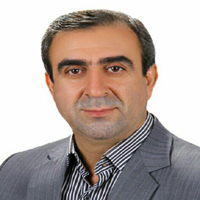Polo-Khoresh Story Collection by Houshang Moradi Kermnai on the Scales of P4C
Invented by American Matthew Lipman, Philosophy for Children (P4C) is an innovative program in education and training which aims to teach thinking skills to children. This program presents various philosophical contents to children through stories. The current study, which is a kind of descriptive-analytical one using library sources, aims to figure out literal, philosophical and psychological richness of the stories in Polo-Koresh collection by Houshang Moradi Kermani in the framework of P4C. The stories are “Dournin-e-Shekari[1]”, “zir-e-noure Sham[2]”, “Honarmand[3]”, “Pishkesh[4]”, and “Polo-Koresh[5]”. The findings reveal that these stories have high capacities in the triple areas. Main characters are dynamic and readers can have identification with them. The theme of “Dournin-e-Shekari”, “zir-e-noure Sham” is non-indoctrinating and no case is cracked at the end. However, “Honarmand”, “Pishkesh”, and “Polo-Koresh” are indoctrinating and crack the case at the end. Except for “Honarmand”, credibility is optimal in all stories. All of them have valuable philosophical themes and contents. Except for “Dournin-e-Shekari”, the theme is somewhat indoctrinating in other stories which is in contrast with P4C goals. All stories contain some dialogues which are challenging, although they need be changed to be in line with P4C goals. Narrating language is fluent enough, except for “Honarmand”. In terms of the relevance of the concepts to the audience’s level of understanding, “zir-e-noure Sham”, “Honarmand”, and “Pishkesh” contain some violent scenes needed be rewritten.
-
Comparing Najm al-Din Razi’s and Ali Ibn Turke Esfahani’s Mystical Schools with Emphasis on the Treatises Love and Reason and Reason and Love (Monazerat Khams)
, Hossein Aghahosseini *
Researches on Mystical Literature (Gawhar-i Guya), -
Analysis of cognitive skills in Razavi's novel Wake me up based on Lipman's critical thinking
Parisa Ahmadi, *
Didactic Literature Review, -
Analyzing Moral, Didactic and Educative Contents of Lakish Proverbs
*
Journal of The Iranian Studies,




